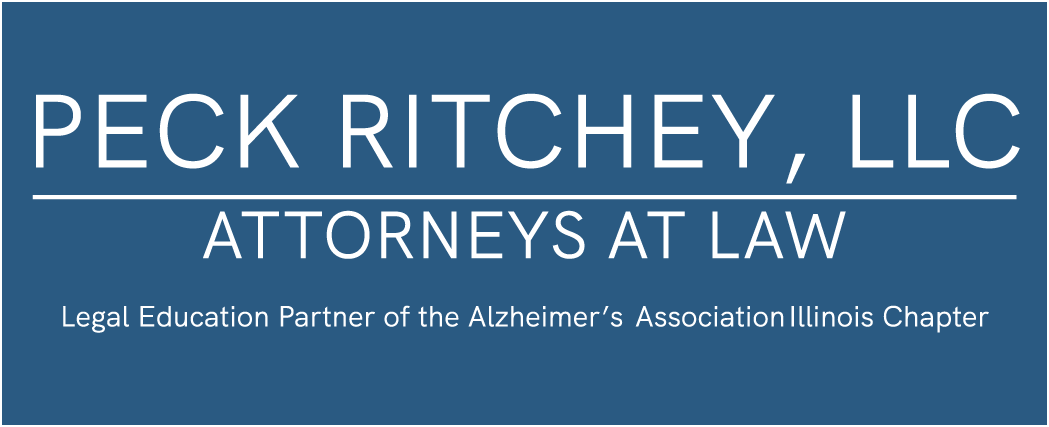 After a family member dies, many decisions must be made. Being the administrator of someone’s estate is a big job and responsibility. In Illinois, there is one primary method that is used to avoid going through probate court. This is called the Illinois small estate affidavit.
After a family member dies, many decisions must be made. Being the administrator of someone’s estate is a big job and responsibility. In Illinois, there is one primary method that is used to avoid going through probate court. This is called the Illinois small estate affidavit.
Using this form, the administrator of an estate can collect the decedent’s assets, pay the debts and distribute the balance to the heirs and beneficiaries. Using this method, a probate case can be avoided. However, several criteria must be met, including:
- The total assets must equal no more than $100,000 and must not include real estate
- The creditors must be paid
- No creditor claims can be contested by the estate
- There must be no disputes between the heirs and beneficiaries
When an estate is small and can be distributed using an affidavit, you may not need an attorney to settle the distribution. However, there still may be reasons an executor will use the services of a probate attorney to reduce liability and ensure the successful distribution of the assets. To avoid a lawsuit by the beneficiaries, an executor must have a thorough understanding of the probate requirements in Illinois.
What Does a Probate Attorney Do?
Probate is the legal process that ensures a decedent’s debts and taxes are paid. Probate laws are complex, and even when the size of the estate does not require a probate attorney, hiring an experienced probate lawyer can save time and money in the long run.
The purpose of probate is to clearly identify who inherits the property and make sure that all valid debts and taxes are paid. Generally speaking, a formal court proceeding is necessary when the assets of the decedent are owned solely and together are worth more than $100,000.
However, some assets do not need to go through probate. These can include assets that are held in trust, real estate subject to a transfer on death deed, and assets that have a beneficiary designation. For example, retirement accounts may have a named beneficiary who receives the account upon the decedent’s death.
When the decedent has a will, probate is necessary. However, if all the assets were placed in a trust, the trust does not go through probate. Yet, even if there is only a trust involved, a probate attorney can still help the trustee administer and distribute the trust assets.
An experienced probate attorney can advise the executor and beneficiary on the best way to settle the debt if the estate does not have enough assets to pay the debt and taxes. Likewise, it is not unusual for some family members to dispute the terms of a will.
When there are large sums of money involved, family arguments and disputes can result. A probate lawyer is an excellent negotiator and mediator and can help resolve these disputes. After death, if a family business is being divided or sold, a probate attorney can ensure the transfer is legal and all agreements are honored.
A probate attorney also helps protect the executor of the will, who may not be a member of the family. Even when the estate has a low asset value, the executor has the legal obligation to distribute the assets and pay the taxes and debts.
A probate attorney can also help collect life insurance policy proceeds, determine and pay inheritance taxes, prepare and file all court documents, and retitle assets in the beneficiaries’ name.
Who Pays the Fees?
 In Illinois, the law provides that the cost of administering the estate, including reasonable attorney fees, is paid by the estate. Initially, the executor may have to pay a retainer, but this is reimbursed by the estate. While popular media like to exaggerate the cost, most probate fees are very reasonable.
In Illinois, the law provides that the cost of administering the estate, including reasonable attorney fees, is paid by the estate. Initially, the executor may have to pay a retainer, but this is reimbursed by the estate. While popular media like to exaggerate the cost, most probate fees are very reasonable.
If the executor handles many of the duties associated with administration, this can reduce the fees even further. During your initial consultation, the attorney can help estimate the cost of administering your estate. However, even in simple estates, the cost can go higher than average when family disputes arise, or the executor chooses to delegate many of the responsibilities to the probate attorney.
If the probate attorney must defend the executor’s malfeasance, the bill cannot be paid out of the estate. Hiring a probate attorney will help ensure appropriate distribution of property, speed the probate process and reduce the likelihood that the executor will be sued.
Contact Peck Ritchey, LLC Today for a Free Consultation
The legal team at Peck Ritchey, LLC has over 100 years of combined legal experience in handling probate and trust litigation. We understand that each case is unique, so we give every client personalized attention. Many challenges can arise during a probate process. It helps to have a compassionate and knowledgeable lawyer on your team.
Our team of dedicated legal professionals can help in a variety of probate or estate distribution situations. We focus on helping you through the probate process and ensuring that the estate is distributed as the decedent instructed in the will or trust. A lot can happen during the probate process, even when estate planning documents exist. Don’t leave settling the estate to chance. Call our office at (312) 201-0900 or contact us online for your free initial consultation.
